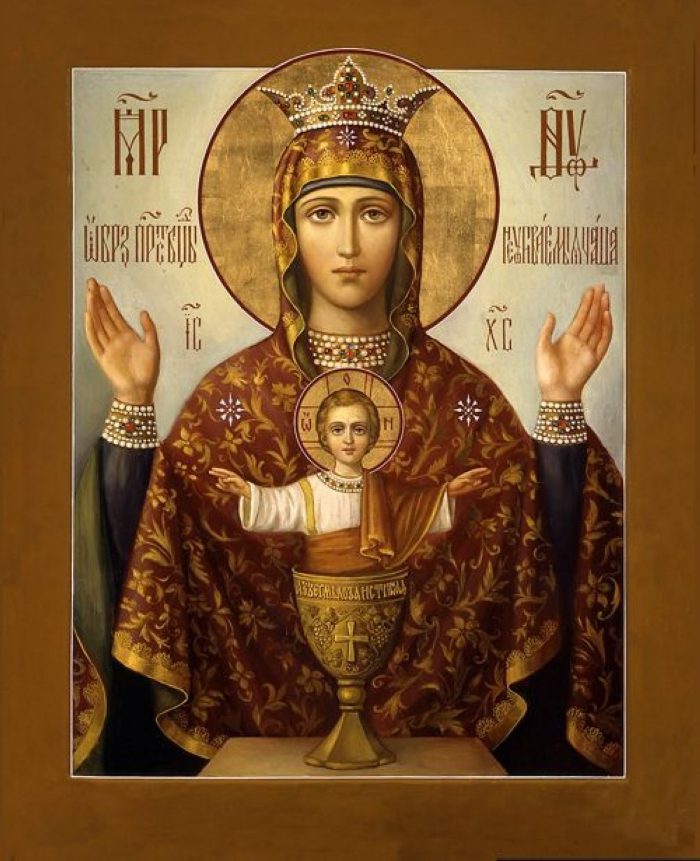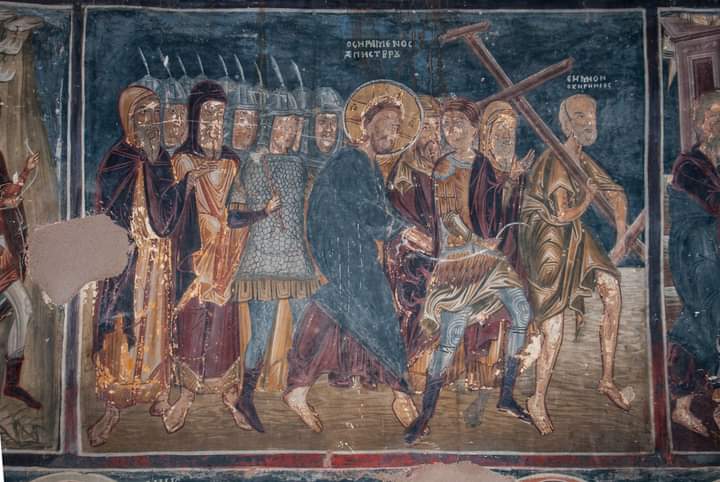What is the place of women in the church and in life in general? After all, the Orthodox view is a special view. And the opinions of different priests can differ greatly from each other (even if we do not take into account the misogynist Tkachev) – someone sees Delilah and Herodias in women, someone – myrrh-bearers.
In the world created by God, a man and a woman are two absolutely equal parts of a single whole: the world simply could not exist if they did not complement each other.
It is this unity that the Apostle Paul emphasizes, speaking about the earthly segment of human history: “the two will become one flesh.”
If we talk about eternity, then in it, according to the words of the same Paul: “there is neither male nor female; for you are all one in Christ Jesus.” And this is the same unity, but in its exclusive fullness (“marriage is only a prophetic image of the future century, of humanity in slalu naturae integrae [in a state of integral nature]” – Pavel Evdokimov).
As for the role of women… There is an interesting moment in the Gospel, which for some reason is traditionally ignored by Orthodox (and perhaps other Christian) preachers.
We know that Christ was born of Mary. She became the focus in which the thousand-year history of the Jewish people converged. All the prophets, patriarchs and kings of the people of Israel lived so that at some point this young girl would agree to become the mother of God and give Him the opportunity to save us all.
God did not use her as a “walking incubator” (which is what Orthodox pastors seriously see as the purpose of women), did not deceive her, as Zeus did with Alcmene, Leda or Danae, He chose her as the mother of His Son and gave her the right to freely respond with consent or refusal.
All this is common knowledge. But few people pay attention to the fact that there is no place for a man in this story.
There is God and a woman who save the world. There is Christ, who, dying on the cross, conquers death and redeems humanity with his blood. And there is Mary, standing at the cross of her Divine Son, whose “weapon pierces the soul.”
And all the men are somewhere out there – feasting in palaces, judging, making sacrifices, betraying, shaking with hatred or fear, preaching, fighting, teaching.
They have their own role in this “divine tragedy”, but at this culmination of human history, the main role is played by two – God and Woman.
And true Christianity by no means reduced the entire role of a woman to the birth of children and household chores.
For example, St. Paula, a highly educated woman, helped Blessed Jerome in his work on translating the Bible.
The monasteries of England and Ireland in the 6th and 7th centuries became centers for the training of erudite women who were knowledgeable in theology, canon law, and wrote Latin poetry. St. Gertrude translated the Holy Scriptures from Greek. Female monastic orders in Catholicism carried out a wide variety of social services.
From an Orthodox perspective on the matter, a useful synthesis is provided by a document from the year 2000 – “Fundamentals of the Social Concept of the Russian Orthodox Church”, approved by the Holy Synod of Bishops, in the year of the Great Jubilee, at the border between the millennia.
The foundations of the social concept of the Russian Orthodox Church are intended to serve as a guide for synodal institutions, dioceses, monasteries, parishes and other canonical church institutions in their relations with state power, with various secular organizations, with non-church mass media. On the basis of this document, the ecclesiastical Hierarchy adopts decisions on various issues, the relevance of which is limited within the boundaries of individual countries or to some short period of time, as well as when the subject of consideration is sufficiently private. The document is included in the educational process of the spiritual schools of the Moscow Patriarchate. In accordance with the changes in state and social life, the emergence of new problems in this area, which are important for the Church, the foundations of its social concept can be developed and improved. The results of this process are confirmed by the Holy Synod, by Local or Bishops’ Councils:
X. 5. In the pre-Christian world there existed the idea of woman as an inferior being compared to man. The Church of Christ revealed the dignity and vocation of women in all their fullness by giving them a deep religious justification, which found its peak in the veneration of the Blessed Virgin Mary. According to Orthodox teaching, the blessed Mary, blessed among women (Luke 1:28), manifested in herself that highest degree of moral purity, spiritual perfection and holiness to which man can rise and which surpasses in dignity the ranks of angels. In her person, motherhood is sanctified and the importance of the feminine is affirmed. The mystery of the Incarnation takes place with the participation of the Mother of God, as she participates in the work of salvation and rebirth of man. The Church deeply honors the evangelical myrrh-bearing women, as well as the numerous Christian figures glorified by the feats of martyrdom, confession and righteousness. From the very beginning of the existence of the ecclesiastical community, women actively participated in its organization, liturgical life, missionary work, preaching, education and charity.
Valuing highly the social role of women and welcoming their political, cultural and social equality with men, at the same time the Church opposes tendencies to belittle the role of women as wife and mother. The fundamental equality of dignity of the sexes does not eliminate their natural differences and does not mean the identification of their vocation both in the family and in society. In particular, the Church cannot misinterpret the words of St. app. Paul about the special responsibility of the man who is called to be “head of the woman” and to love her as Christ loves His Church or about the call of the woman to submit to the man as the Church submits to Christ (Eph. 5 :22-33; Col. 3:18). Here, of course, we are not talking about the despotism of the man or the fortification of the woman, but about the primacy of responsibility, care and love; it should also not be forgotten that all Christians are called to obey “one another in the fear of God” (Eph. 5:21). Therefore, “neither a man without a woman, nor a woman without a man, is in the Lord.” For as the woman is from the man, so the man is through the woman, and everything is from God” (I Cor. 11:11-12).
Representatives of some social currents tend to downplay, and sometimes even deny the importance of marriage and the institution of the family, paying attention mainly to the social importance of women, including activities that are slightly compatible or even incompatible with female nature (such as for example work involving heavy physical labor). The frequent calls for an artificial equalization of the participation of men and women in all spheres of human activity. The Church sees the purpose of woman not simply in imitating man or competing with him, but in developing her God-given abilities, which are inherent only in her nature. By not emphasizing only the system of distribution of social functions, Christian anthropology places women in a much higher place than modern non-religious ideas. The desire to destroy or minimize natural division in the public sphere is not inherent in ecclesiastical reason. Gender differences, as well as social and ethical ones, do not hinder access to the salvation that Christ has brought to all people: “There is no longer Jew, nor Greek; there is no longer slave, nor free; neither male nor female; for you are all one in Christ Jesus” (Gal. 3:28). At the same time, this sotiological statement does not imply the artificial unification of human diversity and should not be mechanically applied to all public relations.





